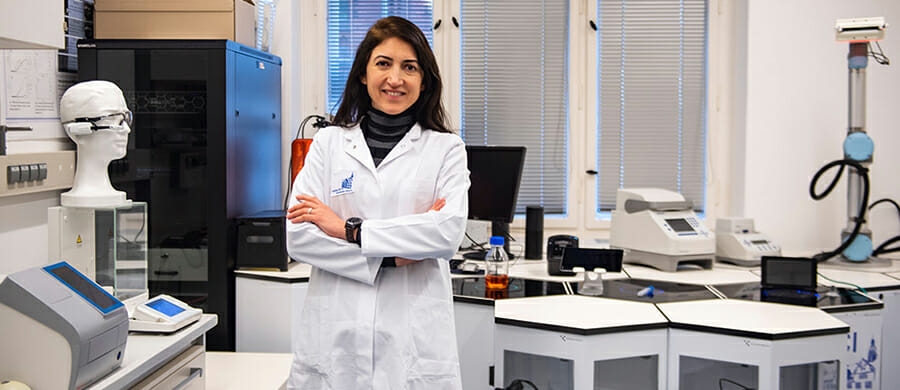Leibniz University Hannover
Institut of Food Science and Human Nutrition
DATA & FACTS
Projects
Oli4Food (2023-2026)
Scientific contact
Prof.in Dr.in Tuba Esatbeyoglu
EU-Funding line
PRIMA: Research and Innovation in the Mediterranean Area
Projektleitung: Prof. Dr.-Ing. Arno Kwade
Projektname: „Li-Ion Pilot Lines Network“ (LiPLANET)
Keywords: Energie, Mobilität, Partner
PRIMA – Oli4food cooperation project: From waste product to functional food
EU project to promote olive cultivation and consumption
Olives are healthy: They protect the heart, fight inflammation, and preserve cells. Rich in iron, vitamins and unsaturated fatty acids, they are one of the main components of the Mediterranean diet, which is essentially based on cereals, fruit and vegetables. The recently launched EU project Oli4Food aims to help establish the consumption of olives and the Mediterranean diet in Northern and Central Europe. The European Union (EU) is funding Oli4Food with a total of more than 1.2 million euros.
Nine partners from six countries are involved in the joint project. The coordinator of the research project is Prof. Dr. Esra Capanoglu from Istanbul Technical University, who will be conducting research at Leibniz Universität Hannover (LUH) for one year funded by a Georg Forster Research Award from the Alexander von Humboldt Foundation. The project leader at LUH is Prof. Dr. Tuba Esatbeyoglu, Institute of Food Science and Human Nutrition.
The main goal of Oli4Food is to encourage more people to eat a healthier, plant-based diet and thus prevent diseases of civilisation, such as osteoarthritis, type II diabetes or obesity, before they develop. At the same time, the EU wants to promote the sale of olives as one of the main export products from Southern European countries and thus strengthen their economies. Emphasis will also be placed on supporting sustainable cultivation strategies. In addition, Oli4Food wants to contribute to ensuring that as many components of the olive as possible are used in the industry in the sense of holistic utilisation. For example, the research team will also focus on the so-called pomace, which is actually produced as a waste product during pressing, but is still rich in polyphenols and other active substances. So far, olive pomace has only been used as animal feed and fertiliser.
At the Institute of Food Science and Human Nutrition at LUH, scientists are particularly interested in the health benefits of olives. “Our goal is to increase the levels of valuable ingredients by applying innovative processes,” says Professor Esatbeyoglu.
The focus is on two topics: On the one hand, the aim is to test how non-thermal processes affect shelf life and the levels of active ingredients in olives. Examples of non-thermal processes include high-pressure treatment, cold plasma or pulsed electric fields that open the pores in the cell membranes. The second topic is to analyse the health benefits of olive-based products after non-thermal treatment. For example, anti-inflammatory effects will be demonstrated in cell culture studies.
In addition to the Istanbul University of Technology and LUH, the consortium also includes partners from the Mediterranean countries of Italy (University of Catania, Marche Polytechnic University), Spain (Meat Technology Centre Galicia), Egypt (Cairo University), Turkey (Bornova Olive Research Institute, University of Health Sciences) and Morocco (Mohammed Premier University).
Date:
August 28th, 2023
this might also interest you …

Project: decades
The chemical industry is currently facing the challenging transformation of replacing classic, chemical manufacturing processes based on petroleum with sustainable, bio-based products, in line with the concept of a circular bioeconomy. Solvents, in particular, play a crucial role in the chemical industry along the entire production chain.

Project: Selina
Utilise biodiversity resources in a manner that preserves them and allows previously damaged ecosystems to regenerate: that is the aim of the European project SELINA, which will be coordinated by Leibniz University Hannover (LUH) commencing 1 July 2022. The European Union (EU) awarded the project 13 million euros…
